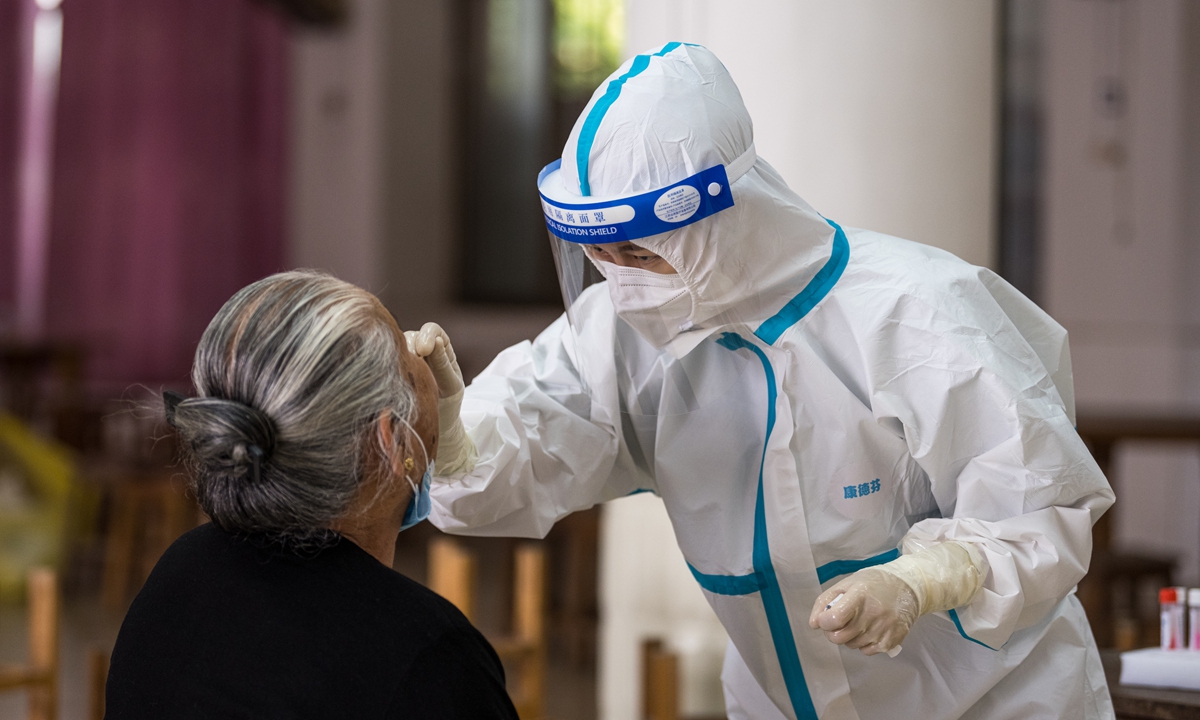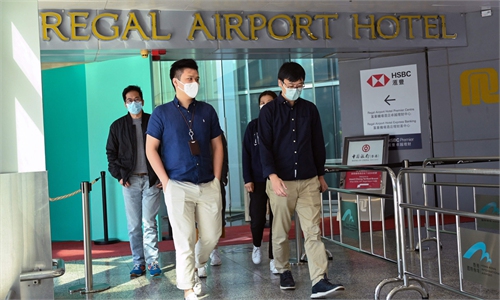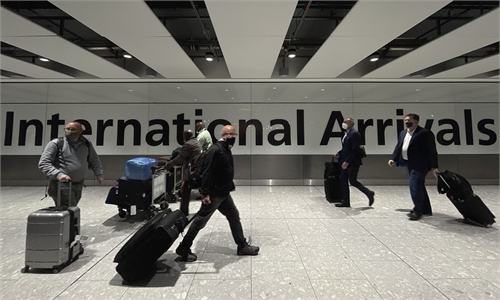China is the strongest line of defense in the face of new COVID-19 variant: Global Times editorial

A resident receives COVID-19 nucleic acid test in Ruili, Southwest China's Yunnan Province on October 29, 2021. The city which shares a border with Myanmar has been testing residents daily this week. Photo: VCG
A new variant of the novel coronavirus recently detected in South Africa has been officially named by the WHO as Omicron. As infections by this new variant have been found in many European countries, the world is highly nervous. The US and several European countries moved swiftly to impose travel bans on travelers from eight African countries including South Africa. Israel, in the most thorough response, announced it would shut its borders to all foreigners for 14 days.US epidemiologist Anthony Fauci said that he "would not be surprised" if the variant had already made its way into the US. It is generally believed that the US is doing slow work in sequencing the genome of a novel coronavirus.
South Africa, whose flights have been blocked by many countries, feels aggrieved. Some African officials complained that the West's hoarding of vaccines led to the emergence of Omicron. Such criticism is at least partially justified.
Western countries control most of the resources needed to fight the COVID-19 pandemic. But they have failed to curb the spread of the virus and have exposed more and more developing countries to the virus. Too many communities have provided a favorable environment for virus transmission and mutation, except in China and a small number of other countries and regions. Although most of the new mutated variants of COVID-19 are short-lived, some inevitably evolve to become more aggressive and fatal. The raging Delta variant has proven this and Omicron is posing a new challenge.
Some preliminary signs have led to serious speculation: The Omicron variant has more spike protein mutations, it can mutate into different variants, and is mostly located in areas that interact with human cells. Therefore, it is likely to be more transmissible and to break through the shield of immunity. It is potentially more dangerous than the Delta variant has been. These all have yet to be verified by time.
The "open door" policy of the US and Europe not long ago is being tested. Major Western countries have cut air links with countries such as South Africa, showing that these countries are frightened. Establishing an immune shield based on the vaccine alone has actually proved to be a risky route, and can even be said to have failed to a large extent. Now it is still unclear how much of the Omicron variant has infiltrated Western society, but it is almost certain that there are more than the few isolated cases identified so far. There barely is any barrier other than the COVID-19 vaccine in the West, so a large number of countries will be under great danger if this new variant turns out to be extremely contagious.
China's dynamic zero-case route has been criticized in the West in many ways. However, if the Omicron variant launches a new wave of attack, it is China that will be best able to block its invasion. The dynamic zero-case policy has pushed China to form a complete system, which includes both scientific spirit and political decision-making power. Moreover, it also includes strong social organization and the willingness of the general public to cooperate. This has made China a true impregnable fortress against the spread of the virus in the world today.
The war between humanity and the novel coronavirus is destined to be a marathon, and the virus will potentially shape human behavior patterns more than climate change. China has responded to the challenge pragmatically: It has not been influenced by any a priori knowledge. The country is taking the most effective measures to protect its people's lives, health and safety. It is adjusting to maintain normal economic operations to the best effect. China has strength and unity, and thus it can repel round after round of the virus' ferocious attacks.
It is understandable that the characteristics of Western society make it difficult to take China's anti-COVID-19 route. But Western public opinion attacking China's dynamic zero-case policy is a serious betrayal of the spirit of seeking truth from facts. The US government in particular wants to reap geopolitical benefits from the combat against COVID-19, or to politically cover up their problems in this fight. As the Omicron variant rages on, US Secretary of State Antony Blinken on Saturday praised South Africa for its speed and transparency in sharing information about the new variant, the implied meaning of which is to blame China. Yet all the realities will make the US and Western politicians learn that China's achievements in fighting the pandemic will eventually shine in human history.


